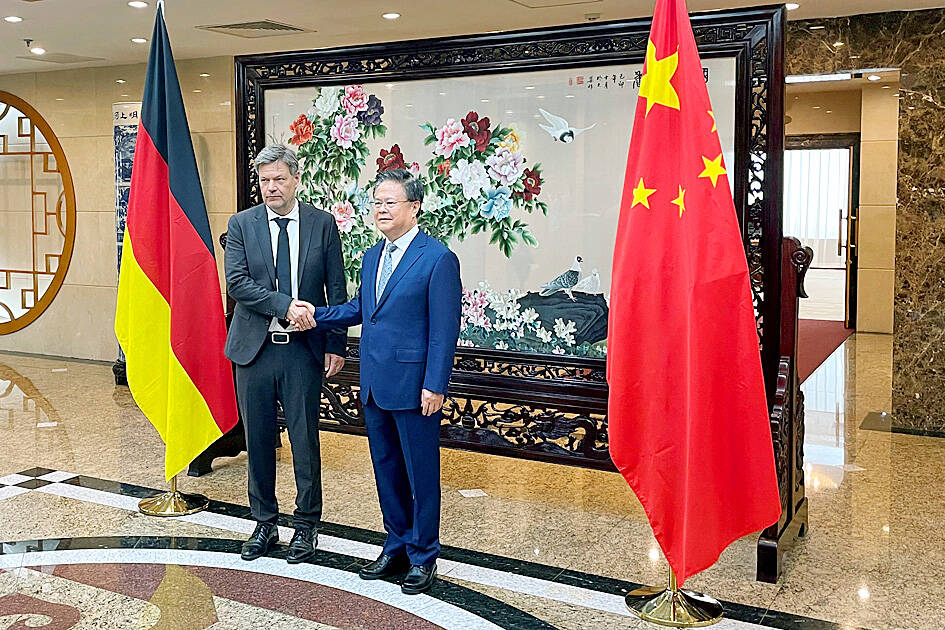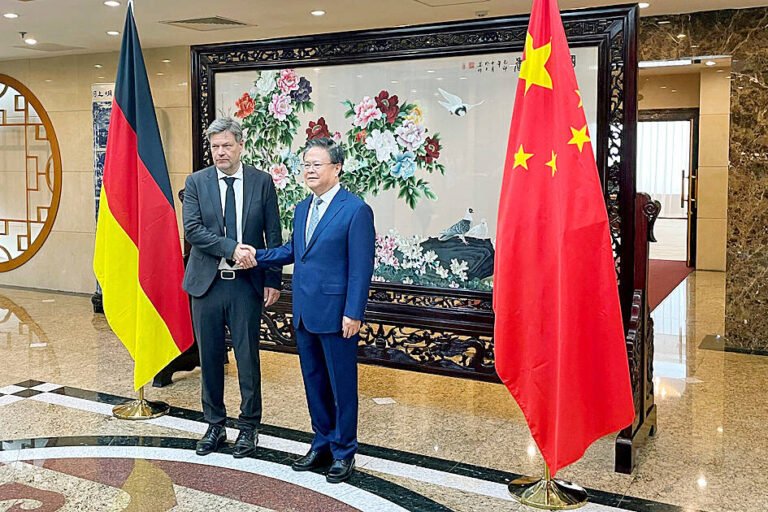-
AP and Reuters,
BEIJING and WASHINGTON
The US Department of the Treasury on Friday fleshed out a proposed rule that would restrict and monitor US investments in China for artificial intelligence (AI), computer chips and quantum computing, while the German economy minister in China yesterday said that the EU’s door is open for discussions regarding tariffs on Chinese exports.
Washington’s proposed rule stems from US President Joe Biden’s executive order in August last year regarding the access that “countries of concern” have to US dollars that fund advanced technologies, which the US government says would enhance their military, intelligence, surveillance and cyber capabilities. The order identified China, Hong Kong and Macau as countries of concern.
The proposed rule outlines the required information that US citizens and permanent residents must provide when engaging in transactions in the area, as well as what would be considered a breach of the restrictions.

Photo: Reuters
It specifically would prohibit US investors from funding AI systems in China that could be used for weapons targeting, combat and location tracking, among other military applications, said a senior Treasury official who previewed the rule for reporters on condition of anonymity.
The Treasury is seeking comment on the proposal through Aug. 4, and after that is expected to issue a final rule.
In Beijing yesterday, German Minister for Economic Affairs and Climate Action Robert Habeck told Chinese officials that proposed EU rules on Chinese goods are not a “punishment.”
Habeck’s visit to China is the first by a senior European official since Brussels proposed hefty duties on imports of Chinese-made electric vehicles (EVs) to combat what the EU considers excessive subsidies.
“It is important to understand that these are not punitive tariffs,” Habeck said in the first plenary session of a climate and transformation dialogue.
Countries such as the US, Brazil and Turkey had used punitive tariffs, but not the EU, he said. “Europe does things differently.”
Habeck said that for nine months, the European Commission had examined in great detail whether Chinese companies had benefited unfairly from subsidies.
“Common, equal standards for market access should be achieved,” Habeck said.
Meeting Chinese National Development and Reform Commission Chairman Zheng Shanjie (鄭珊潔) Habeck said the proposed EU tariffs were intended to level the playing field with China.
“We will do everything to protect Chinese companies,” Zheng said.
Proposed EU import duties on Chinese-made EVs would hurt both sides, he added.
After his meeting with Zheng, Habeck spoke with Chinese Minister of Commerce Wang Wentao (王文濤), who said he would discuss the tariffs with EU Commissioner for Trade Valdis Dombrovskis yesterday evening via videoconference.
“What I suggested to my Chinese partners today is that the doors are open for discussions and I hope that this message was heard,” Habeck said in Shanghai later. “This opens a phase where negotiations are possible, discussions are important and dialogue is needed.”
Comments will be moderated. Keep comments relevant to the article. Remarks containing abusive and obscene language, personal attacks of any kind or promotion will be removed and the user banned. Final decision will be at the discretion of the Taipei Times.

